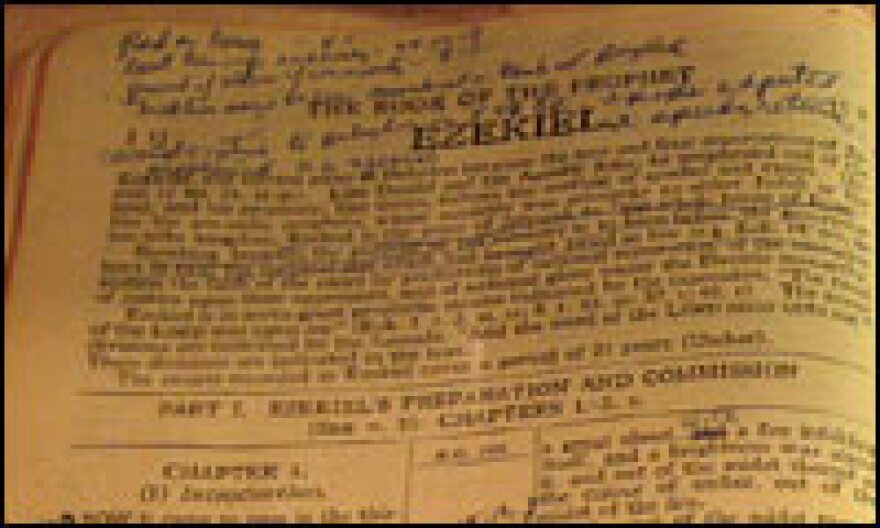

The Rev. Jerry Falwell marks a milestone this weekend. He opens a new church building -- 50 years after he attracted his first few dozen followers.
The new church, with 1 million square feet of floor space, has seats for 6,000.
The man who will appear on the Lynchburg, Va., church's giant TV screens has televised his services for decades. Within weeks of opening the original Thomas Road Baptist Church in 1956, Falwell notes that he was broadcasting on the radio, and shortly after that on television.
Today, Falwell introduces programs from a TV studio at Liberty University. He founded the conservative Christian school, which houses the Jerry Falwell Museum. It also has an ice rink paid for by Tim LaHaye, best-selling author of the apocalyptic Left Behind novels.
Presidential contenders make pilgrimages here. Sen. John McCain (R-AZ) recently gave a commencement address at the university.
"I was taught in Bible college, religion and politics don't mix," Falwell says.
He influenced many ministers to ignore that teaching in the 1970s. He led the Moral Majority, which made abortion a major issue, and claimed credit for electing President Ronald Reagan.
Falwell backs President Bush, even though Republicans haven't delivered on issues like a ban on gay marriage.
"I'm well aware of the pragmatism of politics. There are times when [the president] has to step back, purely for survival reasons," Falwell says.
Falwell adds that White House officials often call him to explain what they're doing. And he calls them to speak his mind.
"Whenever it's a major problem, and I think we are being misled, I pick up the phone and I call whoever I need to call and take care of it," he says.
Falwell is asked why many Americans, and evangelicals, have become frustrated with President Bush.
"Well, whoever is sitting in the White House, especially in their second term, when gas goes up to $3 a gallon, and Katrina, and whenever we're at war, that person sitting in the White House gets the brunt of the accusations," Falwell says.
Shortly after the Sept. 11, 2001, attacks, Falwell said gays, abortionists, the American Civil Liberties Union and other groups shared the blame for the attacks.
Falwell was criticized for those remarks, and for calling the United States a Christian nation, and for saying the devil is Jewish.
His newspaper suggested that a character in the children's program Teletubbies, was gay, a statement Falwell disowns.
"But I've had hundreds of little Tinky Winky dolls mailed to me from all over the world and given to all my grandchildren and their friends, and I've populated Lynchburg with Tinky Winkies," Falwell says. "But that's the only benefit I've gotten from that."
Mel White spent many hours with the minister while ghostwriting his autobiography.
"Jerry Falwell is a person you like immediately, up close and personal," White says. "He doesn't take himself seriously. He enjoys life. And even while he says some of the meanest things, it's hard to not like him."
White recalls when Falwell was accosted by gay protesters.
"Jerry grinned and said to me, 'Thank God for these gay demonstrators. If I didn't have them, I'd have to invent them. They give me all the publicity I need.'"
Years later, White became one of those gay protesters. Falwell's ghostwriter came out of the closet, and moved to Lynchburg. He attends Falwell's church, and stands in silent protest if Falwell attacks gays.
"I believe Jerry Falwell will change and I believe it'll be in my lifetime," White says. "And if he doesn't change, I'm gonna die trying."
White says he'll be at the front of the line to attend the new church's opening. "I want to get a front seat, so that if he talks about gay people, I can stand up and protest there just like I did in the old church."
Falwell acknowledges that his controversial remarks about homosexuality and other issues are designed to get attention.
"A pastor has to be media-savvy if he's going to reach everybody," he says. "I don't mean to be ugly and harsh, but to be forthright and candid. And the result is that people that don't like you start listening."
Copyright 2023 NPR. To see more, visit https://www.npr.org.





